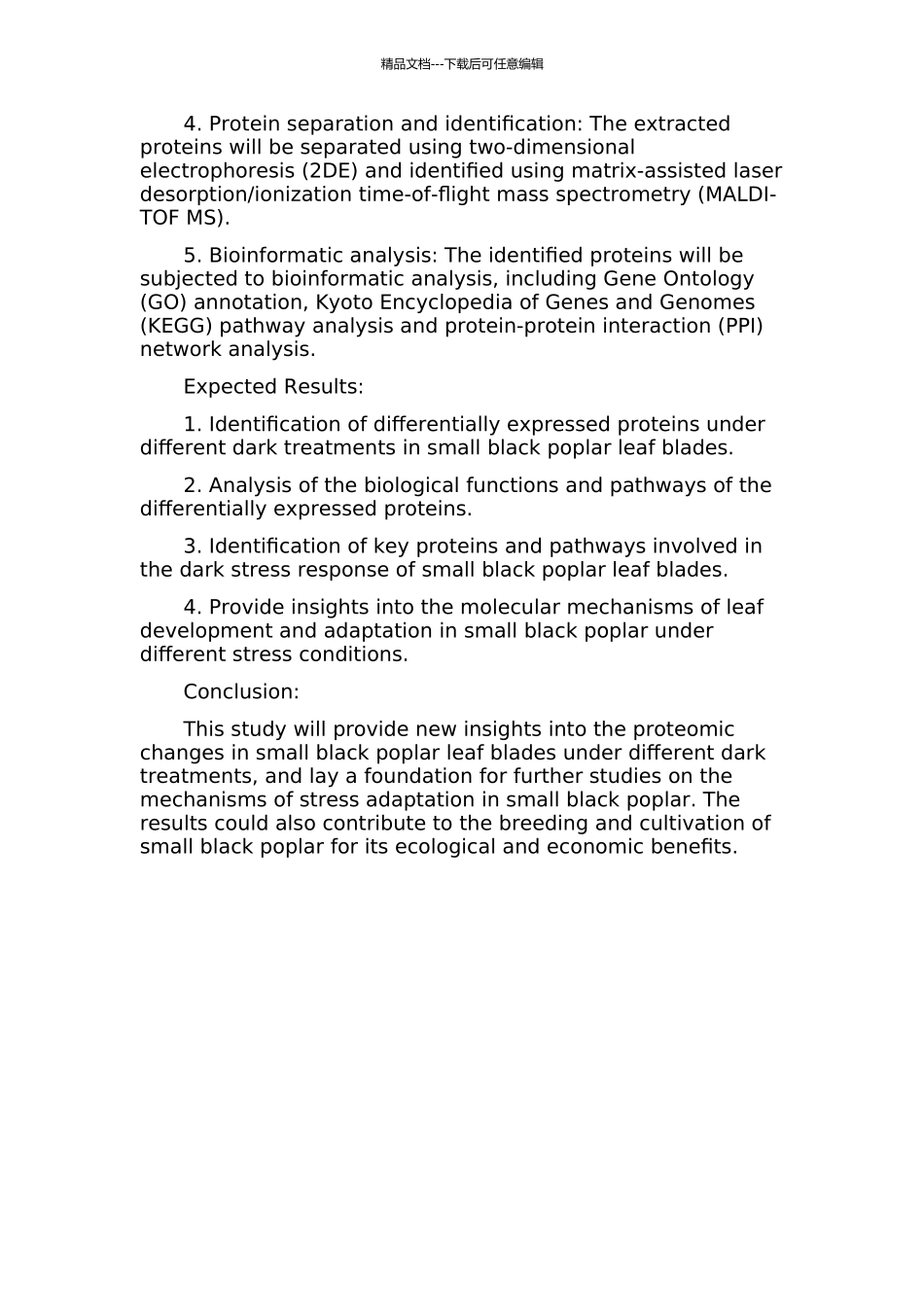精品文档---下载后可任意编辑不同暗处理的小黑杨叶片蛋白质组学讨论的开题报告Title: Proteomic Study of Small Black Poplar Leaf Blades Under Different Dark TreatmentsBackground:Small black poplar (Populus nigra L.) is a widely distributed tree species in the Northern Hemisphere. It is an important ecological and economical species due to its fast growth rate and adaptability to various environmental conditions. However, as a deciduous tree, small black poplar leaves are prone to light stress and their growth and developmental processes can be affected.Dark treatment is an effective tool to study the mechanisms of leaf development and functions. Different dark treatment methods can induce different responses in plants, including changes in morphological, physiological, and molecular characteristics. Recently, proteomic technologies have been widely used to investigate the protein expression changes in different stress conditions, including dark treatments. However, few studies have explored the proteomic changes in small black poplar leaves under different dark treatments.Research Objectives:The aim of this study is to investigate the proteomic changes in small black poplar leaf blades under different dark treatments, including complete darkness and partial darkness, and to identify key proteins and pathways involved in these responses. Methodology:1. Plant material: Small black poplar saplings will be grown under controlled conditions and randomly divided into two groups, one treated with complete darkness and another treated with partial darkness.2. Sample collection: Leaf blades will be collected at different time points during the treatment, including 3 days and 7 days after the treatment.3. Protein extraction: Total proteins will be...

